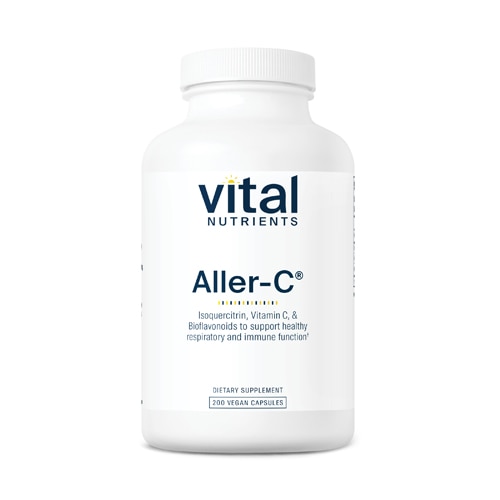Blue skies, mild weather, chirping birds, blooming flowers—there’s no wonder why spring is one of the most joyful seasons of the year.
But, for some, that joy can be eclipsed by watery eyes, scratchy throats, sinus congestion and headaches—in other words, the onset of seasonal allergies and the discomfort, exasperation and pain that come with them.
The promising news is that you don’t have to rely on pharmaceuticals to get through the season, many of which can speed you up (or, conversely, slow you down), as well as give you a fuzzy head, dehydrated sinus membranes and cotton mouth. Rather, you can look towards natural solutions to soothe your allergy symptoms. Here’s the lowdown on home remedies—from what may work to what may be a waste of your time.
Skip: local raw honey
It may be an ancient remedy for the symptoms associated with allergies but eating a tablespoon of local raw honey has endured for centuries. Rooted in the idea of immunotherapy—a form of treatment in which one gets a small amount of a substance to build immunity around it—this remedy is believed to enable you to cultivate resistance against the very pollen to which you’re allergic.
Skeptics, such as allergist Neeta Ogden, MD, decry the fact that we don’t know what’s actually in the honey. “With immunotherapy, we isolate the exact allergen patients are allergic to,” she says. What’s more, rarely is an allergy sufferer allergic to the sort of pollen found in local raw honey. Rather, WebMD reports, “pollen from weeds, trees, and grasses is the leading cause of seasonal allergies.” Furthermore, local raw honey may produce a different type of allergic reaction in others, due to bee parts and pollen in the unprocessed product.
Still, honey is a timeless home remedy for relieving sore throats and coughs—symptoms that may strike some allergy sufferers.
Don’t miss: Stinging nettle
It may not have the most appealing name for alleviating allergy symptoms, but stinging nettle is one of the more effective home remedies available. Dating back to ancient Greece—when the medicinal plant was used as a diuretic and a tonic for joint pain—stinging nettle’s name is literal: The fine hair on its leaves and stems emit a tingling, potentially even painful reaction when you brush against them.
But dried and served in a tea (or consumed in a capsule) and the plant may offer relief from allergies: According to a double-blind, comparative study published by the National Institutes of Health, allergic patients noted “a significant benefit” with stinging nettle versus a placebo. Freeze-dried nettles—which can work as natural antihistamines—may also do the trick for those with mild allergic reactions.
Skip: apple cider vinegar
Apple cider vinegar—eye-opening and tart—has long enjoyed ample time in the spotlight for its potential to aid in everything from weight loss to a radiant complexion. Or, as MedGenMed, published by the NIH, puts it: “For more than 2000 years, vinegar has been used to flavor and preserve foods, heal wounds, fight infections, clean surfaces and manage diabetes.” It’s also touted as a boon for allergy sufferers, who claim that its “multitude of qualities” can alleviate stuffiness, sneezing and more.
But while apple cider vinegar may be helpful for some health concerns, relying on it for allergies might create more disappointment than relief. As MedGenMed also reports, scientific investigations do not support the sour liquid’s myriad assertions. That said, its antioxidant content is attractive for its potential to support one’s immune system—and it’s typically safe for moderate consumption. As the American Sinus Association says, “There is no harm to drinking this apple cider vinegar tonic if you enjoy it, but any difference in your allergy symptoms is likely the placebo effect.”
Don’t miss: shower and sweep (and wash and scrub)
Those who are inclined towards cottony heads and congested chests know the power and relief a good, old-fashioned hot shower can provide (thank the steam for the ease it offers). But in addition to “cleaning out” your respiratory tract—and your body—don’t overlook the effectiveness of also keeping your home and office as allergen-free as possible. If you know or suspect that you may be allergic to dust mites, wash all your bedding (and that means your bedspread too) in hot water once a week. Dust mite covers for your bed, box spring, and pillows might also diminish your symptoms. Additionally, maintain a clean home to keep mold and dust in general at bay.
Skip: Grape seed extract
Grape seed extract has a number of star qualities to celebrate, from serving as an excellent choice as an oil for cooking (you can use it in lieu of canola oil) to its rich supply of flavonoids. But claims that it may decrease the production of histamine—compounds in your immune system that, as WebMD cleverly puts it, “act like bouncers at a club” and “help your body get rid of something that’s bothering you”—are unsubstantiated, with the National Institutes of Health reporting that studies “did not show trends supporting the efficacy of GSE in the treatment of SAR” (seasonal allergic rhinitis).
Don’t miss: Dietary changes
Hippocrates was right when he said “Let food be thy medicine and medicine be thy food.” As NPR reports, “The food-as-medicine movement has been around for decades, but it’s making inroads as physicians and medical institutions make food a formal part of treatment, rather than relying solely on medications.” To that end, consider reducing your consumption of processed foods and increasing your intake of foods that may work towards combatting those sneezes and sniffles.
Apples, for example, are a terrific source of quercetin—a flavonoid that may naturally support relief from allergies. (Other foods with high quercetin content include onions, red wine, nectarines, red raspberries, black tea and broccoli.) Turmeric’s main compound, curcumin, may hinder the release of histamine—one of the chief causes of hay fever—while vitamin C-rich tomatoes may help you cultivate tolerance against respiratory issues. Oily fish, such as salmon and herring, might also help soothe allergy symptoms.
Meanwhile, avoid fermented foods like raisins and blue cheese (which can harbor mold spores), as well as dairy, which may generate mucus. Also, if ragweed—whose pollen is a common allergen—provokes your symptoms, sidestep foods in the sunflower family: chamomile, tarragon, endive and artichokes. Do, however, slice open a fresh, golden pineapple: The tropical fruit contains an enzyme called bromelain that supports nasal health and may relieve swelling in the sinuses. Plus, it tastes just like the season: sweet, lively and refreshing.




